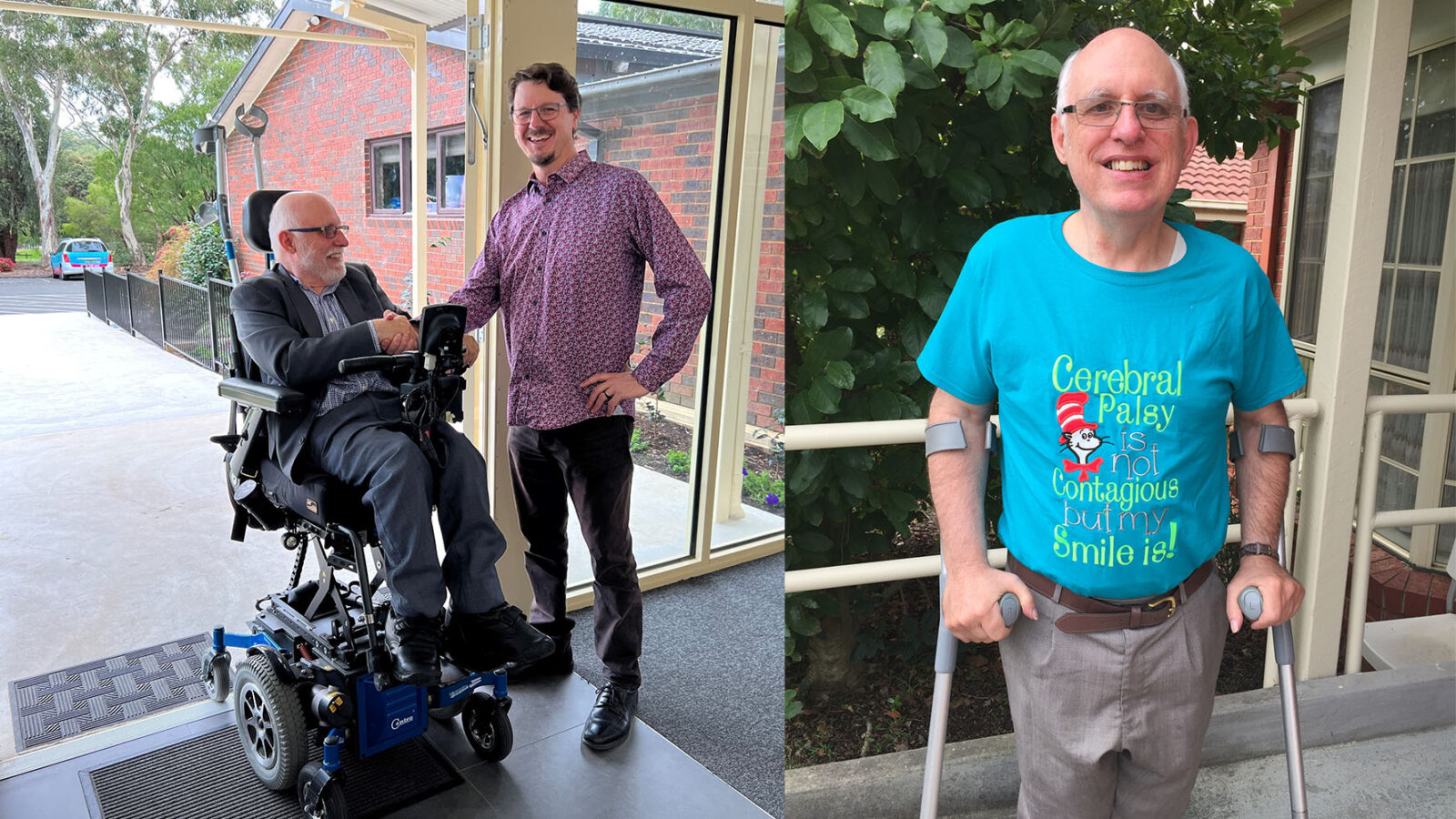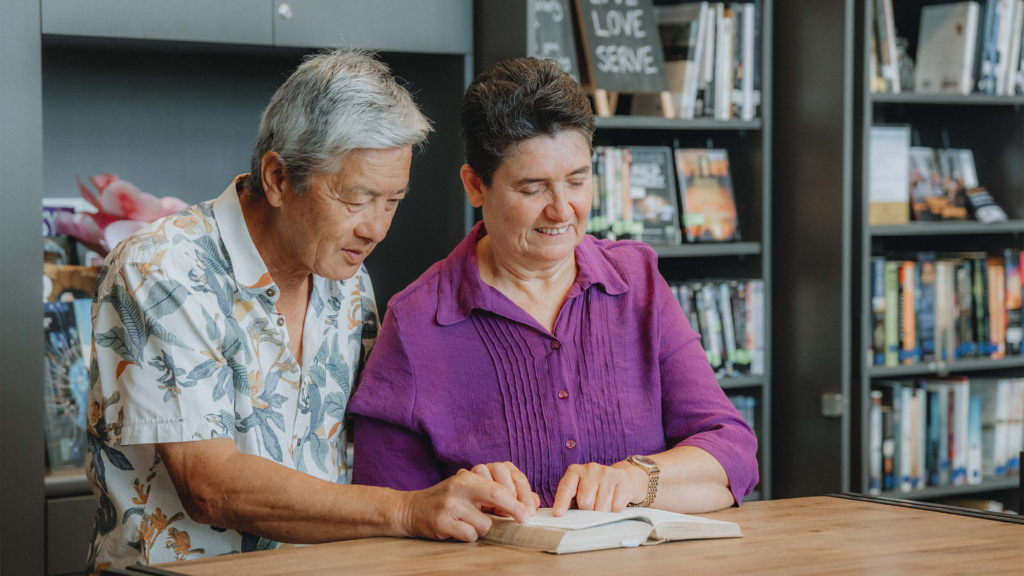I have been living with cerebral palsy since the day of my birth—now almost 70 years ago. I am a twin. Fortunately, my twin brother was born without disabilities.
Over the decades perceptions of disability have changed. The change is reflected in the words we use to describe disability, regulations providing better access to buildings and, most recently, in the implementation of the National Disability Insurance Scheme in Australia.
As a person living with cerebral palsy (CP), I am a keen observer of these changes. Great changes for the better have occurred in some areas and I am a recipient of the improvements which the changes have brought about.
As a Christian, and a member of the Lilydale church in Melbourne, Victoria, I’m particularly grateful for the acceptance I have experienced in the church by all members of the congregation. Recently a teen Sabbath school leader invited me to speak to the teen group.
During my presentation I reflected on how I have been able to keep my faith in God despite my disability. Of course, it has not been an easy road. For some, this is considered sufficient reason to give up their faith in God. For me, it is even more reason to keep trusting in God—that is what faith is!
Too often people are ready to blame God for the things that happen in life that they see as unfair. God gets “bad press” so to speak.
Questions come to mind like: if God is a God of love, or if He even exists, how come He allows suffering in its many guises, including disability? Perhaps you regard this as a question which has no answer. You cannot reconcile the existence of disability with faith in God. It is an irreconcilable dilemma.
I believe that God did not cause my disability, but He allowed it to occur. He is Sovereign over it. My disability is not permanent. I only have it while I remain on this earth. In the new earth I will have a new body, bearing no trace of disability. Jesus has made this possible through the sacrifice He made for me.
Apparently CP is the most common physical disability in childhood, affecting at least 34,000 people in Australia and more than 17 million people worldwide. (See cerebralpalsy.org.au for further information)
My disability belongs to me, I cannot cast it aside. Since it is mine, I must possess it with dignity and do the best I can with it. Each day gives me the opportunity to face life with an “attitude of gratitude”. I’m known among my peers for my positive attitude to life.
I love these words from the Bible: “And he said unto me, My grace is sufficient for thee: for my strength is made perfect in weakness. Most gladly therefore will I rather glory in my infirmities, that the power of Christ may rest upon me”
(2 Corinthians 12:9, KJV). This verse shows that my life can bring glory to God and that is my desire.
I do have times of frustration. I face daily challenges. But my God meets me in my daily circumstances and proves Himself faithful. This is why I can maintain my faith in a God who is faithful to me.
God is not vindictive, wishing to inflict punishment upon me in the form of a disability. Rather, He daily blesses my life with His abundant mercy and grace. He promises:
“Fear thou not; for I am with thee: be not dismayed; for I am thy God: I will strengthen thee; yea, I will help thee; yea, I will uphold thee with the right hand of my righteousness” (Isaiah 41:10, KJV). This gives me every reason to praise God.
Not everyone finds it easy to relate to a person with a disability, I know. This was the concern expressed in one of the questions asked by a teen at Lilydale. While there may be a genuine desire to communicate with a disabled person, at the same time, there may be a reluctance to do so.
If this is your experience, you are not alone. Until you get to know someone, it’s not easy to talk to them. If you really wish to know a disabled person, endeavour to draw them into your circle. The first step may be just a simple “Hello”.
And if you know their name, use it. We are people with names. My name is a mark of my identity. One of the best things you can do for anyone you want to get to know is to pay attention to them; give them your time.
When you do this, you demonstrate the value you place upon them, just as Jesus Christ did. I would like to thank Lilydale church for its inclusive ministry. Those with “special needs” like me are also members of the Body of Christ. Your ministry demonstrates the value you place upon us, and the reality of Christ’s love shown in love for one another.
What follows is a piece I wrote to illustrate how I have come to terms with the reality of living with CP and maintaining my faith in God.
Just a man with CP?
Do you ever have those days when your mind drifts effortlessly to the time when you were a child? Those images play in your mind. You’re the star on a movie set. The camera is rolling. Sometimes you wonder how you’ve ended up with this script and no time to learn your lines.
Did the Director get it wrong? The lines don’t seem to fit. You need more time to rehearse your part and refine your skills. Then you realise you’ve been thrown in at the deep end. This is not a rehearsal; this is the real deal! The lines were written for you. You’ve passed the screen test!
It’s an awesome privilege to be on the set. When you were first handed your lines, the innocence of childhood played its part. You were blinded to the complexities of the role you were set to play. You were a child after all. Life is good in Studio One. This is where the action is.
Then it dawns on you that there’s another world out there. The door to Studio Two has been left open. The props are different. Where are the crutches, the wheelchairs, the callipers? Even the speech is different.
Suddenly, you have an overwhelming urge to be part of what’s going on in Studio Two. The set seems better there, the lines easier to learn. And the props? Where are the props?
Does this describe how you sometimes feel about your life? You’re in Studio One and you’ve drawn the short straw. The role you’ve been given is in a B grade movie. Why were you overlooked for a role on the set in Studio Two? Your lines would be easier if you were there, and the story make more sense; or so you think. Just hand me the script now.
In reality, the two worlds intersect. The characters in each production are part of the same story, but the role of each of us is unique and critical to the development of the story. Play your part well.
The Director has chosen you especially for your role. The camera is rolling! God bless you today.
Geoffrey Panckhurst writes from Ringwood, Victoria.






